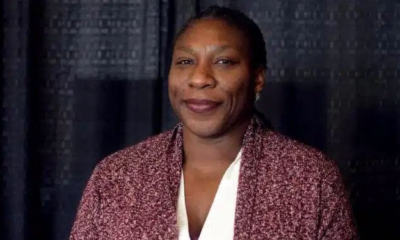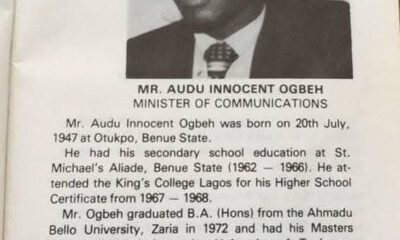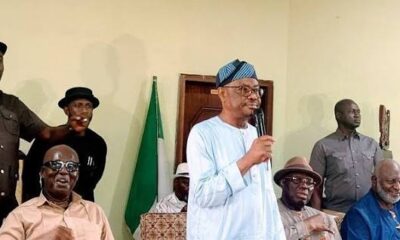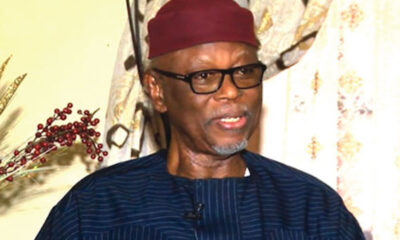News
What we know about Thursday’s ‘Coalition of the Willing’ summit for Ukraine in Paris
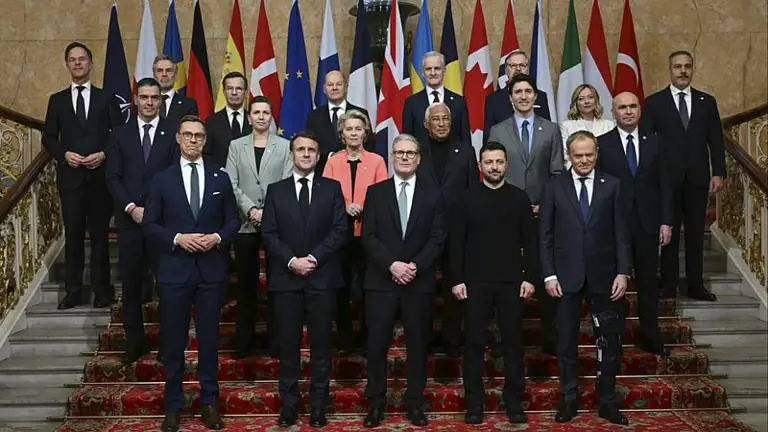
World leaders will gather in Paris on Thursday for a high-stakes summit on Ukraine and to lay the groundwork for long-term security guarantees.
According to the Élysée Palace, 31 countries, including NATO allies, EU member states, and non-EU countries such as the United Kingdom, Canada and Norway are expected to attend.
On Wednesday evening, Macron will host Ukrainian President Volodymyr Zelenskyy in Paris for a working dinner ahead of the summit.
“France will make the pursuit and reinforcement of military and financial support for Ukraine its top priority,” said the Élysée Palace in a statement sent to the press.
What is the ‘Coalition of the Willing?’
The summit’s primary goal is to finalise what security guarantees European nations are willing to offer — including whether they will consider deploying peacekeeping troops on the ground in Ukraine, still embroiled in Russia’s full-scale invasion, now in its fourth year.
France, the UK and Ukraine are also reportedly working on presenting a peace treaty to the US, which will likely be discussed on Thursday.
The countries that agree to this deal would form a “coalition of the willing”.
Thursday’s summit comes at a pivotal moment as the United States announced it had brokered a ceasefire between Russia and Ukraine in the Black Sea.
French officials, however, remain cautious. “There’s still a long way to go,” the Élysée Palace warned, describing the agreement as a “first step” but insufficient for a lasting ceasefire.
Paris insists that all efforts are being conducted in full coordination with Washington. “All this is being done in complete transparency with our American partners,” the Élysée stated, with Macron set to brief US President Donald Trump on the summit’s outcomes.
Tensions have been escalating between the US and the EU. On Tuesday, Trump’s top national security officials laid bare their disdain for Europe in a top-secret group chat that was leaked when a journalist was mistakenly added to the conversation.
“I fully share your loathing of European free-loading. It’s pathetic,” said US Defence Secretary Pete Hegseth, leaving EU officials fuming.
What are the key discussion points?
One of the summit’s primary goals is to bolster aid to Ukraine, with each participating country expected to outline what it is prepared to do.
Another focus will be securing a “complete ceasefire,” accepted by Ukraine, but on which Russia has yet to state its position.
But France remains sceptical of any Russian promises. “We know what kind of cheating and manipulation Russia has already shown itself capable of,” an Élysée source remarked.
Thirdly, to provide long-term support for the Ukrainian army as Europe’s “first line of defence… to prevent further Russian aggression,” said Macron’s entourage.
The most sensitive issue, however, will be the possible establishment of a “reassurance force.”
This could involve deploying peacekeeping troops, an option strongly backed by France and the UK.
The question of whether to send peacekeeping troops is a thorny subject among the 27-nation bloc, with countries such as Italy and Poland opposing this outcome.
News
Man in shock after lady he lodged with in a hotel in Abuja flees with his car and other valuables

A Nigerian man is currently in shock after a young lady identified as Precious Chinyere , whom he took to a hotel in the Asokoro area in the FCT for a romantic getaway allegedly fled with his car and other personal belongings on Thursday, February 5,
The distraught man and Precious had visited the hotel and opted for a short time stay. Things took a different in the evening when the man noticed Precious had left the hotel room without notifying him and took along with her some of his personal belongings including phones and laptop and also his car.
The victim immediately reported the incident to the police.
When contacted, the spokesperson of the FCT police command, SP Josephine Adeh, told LIB that the matter is currently being investigated and that efforts are being made to apprehend the suspect.
News
US Reacts As De@th Toll In Kwara Terror Attacks Hits 200

The United States Mission in Nigeria has condemned the k!lling of more than 200 civilians in recent attacks on communities in Kwara State.
Recall that terrorists launched de@dly attacks on Woro and Nuku communities in Kaiama Local Government Area of the state on Tuesday night, k!lling unsuspecting citizens.
It was gathered that the gunmen invaded the villages, opened fire on residents and burned homes.
According to reports, the de@th toll from the unfortunate incident hit 200 on Thursday night.
Reacting, the US Mission Nigeria condemned the k!lling via a post on its official X handle.
The post reads, “The United States condemns the horrific attack in Kwara state in Nigeria, which claimed the lives of more than 160 people, with the de@th toll still unconfirmed and many still unaccounted for.
“We express our deepest condolences to the families of those affected by this senseless violence.
“We welcome President Tinubu’s order to deploy security forces to protect villages in the area and his directive to federal and state officials to provide aid to the community and bring the perpetrators of this atrocity to justice.”
News
“I’ll never settle for a barber, yahoo boy or a poor man” — nail tech’s list of men she says she can’t marry sparks reactions online

A Nigerian nail technician has set social media talking after openly listing the kind of men she says she can never settle for.
In a now-viral post, she stated clearly that she refuses to “settle for less” and went on to mention professions and traits she considers a no-go area.
According to her, she can never settle for a barber, an aza man, a yahoo boy, a mechanic, an actor, a laundry man, a hype man, or a plumber. She also added that she wouldn’t marry a man with a high body count or a poor man.
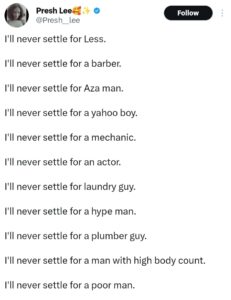
-
Business1 year ago
US court acquits Air Peace boss, slams Mayfield $4000 fine
-

 Trending1 year ago
Trending1 year agoNYA demands release of ‘abducted’ Imo chairman, preaches good governance
-

 Politics1 year ago
Politics1 year agoMexico’s new president causes concern just weeks before the US elections
-

 Politics1 year ago
Politics1 year agoPutin invites 20 world leaders
-

 Politics1 year ago
Politics1 year agoRussia bans imports of agro-products from Kazakhstan after refusal to join BRICS
-
Entertainment1 year ago
Bobrisky falls ill in police custody, rushed to hospital
-
Entertainment1 year ago
Bobrisky transferred from Immigration to FCID, spends night behind bars
-
Education1 year ago
GOVERNOR FUBARA APPOINTS COUNCIL MEMBERS FOR KEN SARO-WIWA POLYTECHNIC BORI

